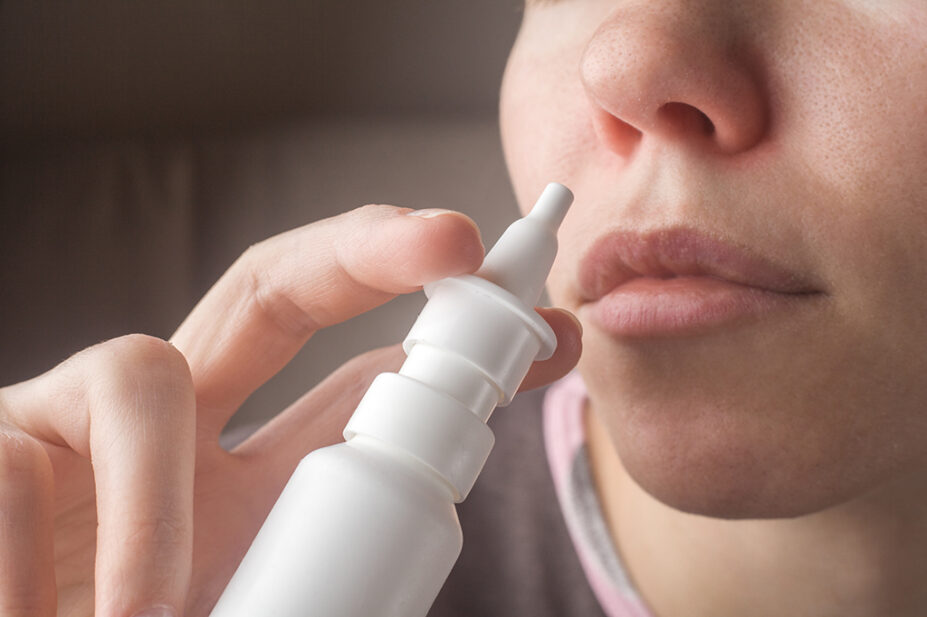
Shutterstock.com
Esketamine nasal spray outperforms one of the standard treatments for treatment-resistant major depression (TRD), according to results from a large clinical trial.
The ESCAPE-TRD study, funded by Janssen EMEA — which manufactures esketamine nasal spray — and published in the New England Journal of Medicine on 5 October 2023, compared the treatment with the antipsychotic drug quetiapine.
ESCAPE-TRD was an open-label, single-blind, randomised, controlled trial, conducted across 171 sites, comprising hospitals, inpatient and outpatient clinics, and research centres in 24 countries. The patients were aged between 18 and 74 years, and all had TRD. All patients had been taking antidepressants, such as selective serotonin re-uptake inhibitors (SSRIs) or serotonin and norepinephrine re-uptake inhibitors (SNRIs).
In the trial, 336 patients received esketamine nasal spray plus an SSRI or SNRI, while another 340 patients received quetiapine plus an SSRI or SNRI. Patients were treated for 8 weeks, followed by 24 weeks of maintenance treatment.
According to the trial results, after 8 weeks, 27% patients in the esketamine group achieved remission, against 18% of patients in the group taking quetiapine. At the 32-week mark, 22% of patients taking esketamine plus antidepressants were still in remission, as opposed to 14% of patients who had taken quetiapine plus antidepressants.
The National Institute for Health and Care Excellence (NICE) rejected esketamine for TRD in 2022, concluding: “The limitations in the clinical evidence and economic model mean it is not possible to determine a reliable cost-effectiveness estimate. Esketamine is unlikely to be an acceptable use of NHS resources, so it is not recommended.”
In Scotland, esketamine use in conjunction with an SSRI or a SNRI for treatment-resistant major depressive disorder was approved by the Scottish Medicines Consortium in September 2020.
Commenting on the study, Nicola Greenhalgh, deputy chief pharmacist, Inpatient, Specialist and Secure Services at Essex Partnership University NHS Foundation Trust, said: “The situation with ketamine is quite difficult in the UK, following the negative NICE TA [technology appraisal] and it remains controversial.
“Overall management of depression that isn’t responding to treatment is limited and often leaves patients in significant distress, with impacts not only to them but to their family, and to wider networks and the wider society. Having a good repertoire of treatment is important to allow clinicians to be able to work with patients to select the most appropriate options for the patient presenting to them and it is hoped that, as the evidence base for esketamine grows, there may be an opportunity to revisit the NICE position.
“Unless NICE does relook at the evidence though, the position that trusts are in makes it very difficult to support the use of esketamine outside of a trial and may push more of them to seek treatments elsewhere. Without any change from NICE, whilst we can theoretically prescribe for individual patients, it’s not straightforward and our hands are almost tied.”
Steve Bazire, honorary professor at the University of East Anglia School of Pharmacy, said: “The conclusions do not surprise me, and are further evidence that esketamine is a very special treatment for TRD. Now there is new and compelling data, I would call on NICE to revisit their flawed guidance in esketamine.”


